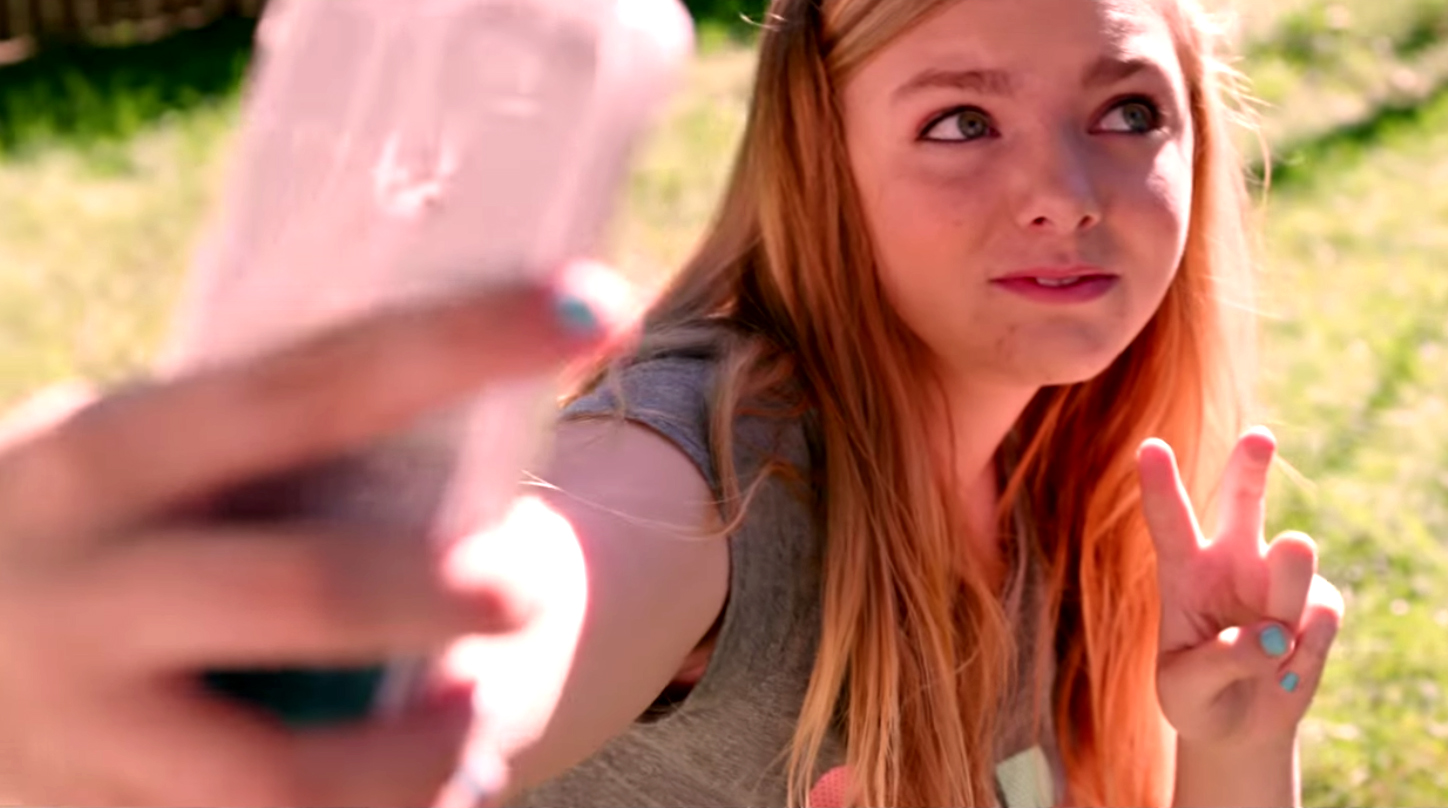Middle school is the worst. Eighth Grade gets it.
Finally, a movie about middle school that treats preteens like actual human beings


A free daily email with the biggest news stories of the day – and the best features from TheWeek.com
You are now subscribed
Your newsletter sign-up was successful
Bo Burnham's wonderful new dramedy Eighth Grade is practically engineered to compel middle-aged dads to text their children as soon as they leave the theater, tearfully checking to see if they're doing okay. For me, it didn't help that I have a daughter the same age as the film's main character, 13-year-old awkward teenager Kayla played brilliantly by Elsie Fisher, and who just finished eighth grade herself. But my own personal attachments aside, this film is objectively brilliant. It deals with an age that is not easy to get right in entertainment. In fact, most films get it wrong. But Eighth Grade expertly captures those middle school growing pains every American kid for generations has endured.
In American cinema and television, more often than not, kids are plot-devices rather than fully-developed characters with their own complicated thoughts and feelings. Even stories that are about adolescents tend to age them too far up or down, based on what the narrative requires. Ten-year-olds, for example, are either precociously, ridiculously clever, or they have the interests and temperaments of kindergartners. And for some reason, they all attend schools that are either exaggeratedly dystopian or borrowed directly from 1950s sitcoms.
By contrast, Eighth Grade, which opens July 13 in limited release, paints a realistic picture of modern middle school life. The students suffer through "active shooter drills," are bombarded by and obsessed with social media, and pay almost no attention to one another. There's hardly any John Hughes-esque social caste system here.
The Week
Escape your echo chamber. Get the facts behind the news, plus analysis from multiple perspectives.

Sign up for The Week's Free Newsletters
From our morning news briefing to a weekly Good News Newsletter, get the best of The Week delivered directly to your inbox.
From our morning news briefing to a weekly Good News Newsletter, get the best of The Week delivered directly to your inbox.
Burnham's understanding of this world is somewhat surprising given that he's 27 and has no kids of his own. But in his previous work as a stand-up comedian and YouTube star — which he's been since he was 16 — Burnham has frequently played with the disconnect between what young people aspire to be like in public and how they actually appear. This was also the theme of his short-lived 2013 MTV sitcom Zach Stone Is Gonna Be Famous, about a recent high school grad whose highest ambition in life is to go viral.

Eighth Grade opens with Kayla documenting her morning ritual online, dispensing sage life-advice to her followers. Except no one's really watching her videos or checking her Instagram, and no matter how she behaves in front of her webcam, Kayla doesn't actually have that much confidence when she's away from her laptop or cell phone. When Kayla's peers vote for her as the class' "Most Quiet," this is the ultimate ironic indignity. All anyone knows about her is that she's good at going unnoticed.
Kayla endures her last dreary week of middle school, worried that 9th grade will be just as hellish. She gets invited to a party where she doesn't fit in. She copes with a dad (played by a terrific Josh Hamilton), who pressures her to "put yourself out there." And when Kayla spends a day shadowing a high school senior, she briefly gets invited into a social circle that's way too worldly — at least for someone who was still in the single digits when The Lego Movie came out.
Burnham is frank about the access kids today have to overly explicit and often confusing information about sex, politics, or whatever else is zipping through their social media feeds. Eighth Grade also gets how the bullying in the halls that teens faced in decades past has now moved more into virtual spaces, giving them the opportunity to feel bad about themselves even when they're seemingly safe at home. But this movie's in no way alarmist. It's much more open-minded, showing how new technology has its advantages too — if only in how it allows young adults to figure out who they want to be, and to interact with people like themselves.
A free daily email with the biggest news stories of the day – and the best features from TheWeek.com
By focusing so closely on one endearingly awkward, wannabe grown-up girl — as well as her well-meaning father, who gives her a pep talk in one of the sweetest scenes of this movie year — Eighth Grade escapes the generalizing and infantilizing that makes so much entertainment about young people feel phony. Case in point: A month before I saw Eighth Grade at Sundance back in January, I attended a holiday concert that my daughter's youth choir participated in. At one point, a talented 12-year-old girl was brought out to solo on "I Want a Hippopotamus for Christmas," a cutesy novelty song more appropriate for someone about half her age, who might still be excited about Santa and toys.
I'm somewhat sympathetic to our culture's need to keep "children" as a concept frozen at the age before the little tykes hit puberty, after which they start becoming complex, mature individuals. But one of the smartest choices Burnham makes with Eighth Grade is to have Kayla keep looking back at who she used to be, and leaving little time-capsules for the person she's about to become. A big part of growing up is developing a sense of time passing, and becoming aware of what's getting lost and found along the way.
Eighth Grade isn't groundbreaking by any means. It's mostly just a crowd-pleaser, updating familiar story and character elements in ways that feel fresh and ring true. But it's great to see a movie about young people that understands the profundity of something as simple as this: Things change.
Noel Murray is a freelance writer, living in Arkansas with his wife and two kids. He was one of the co-founders of the late, lamented movie/culture website The Dissolve, and his articles about film, TV, music, and comics currently appear regularly in The A.V. Club, Rolling Stone, Vulture, The Los Angeles Times, and The New York Times.
